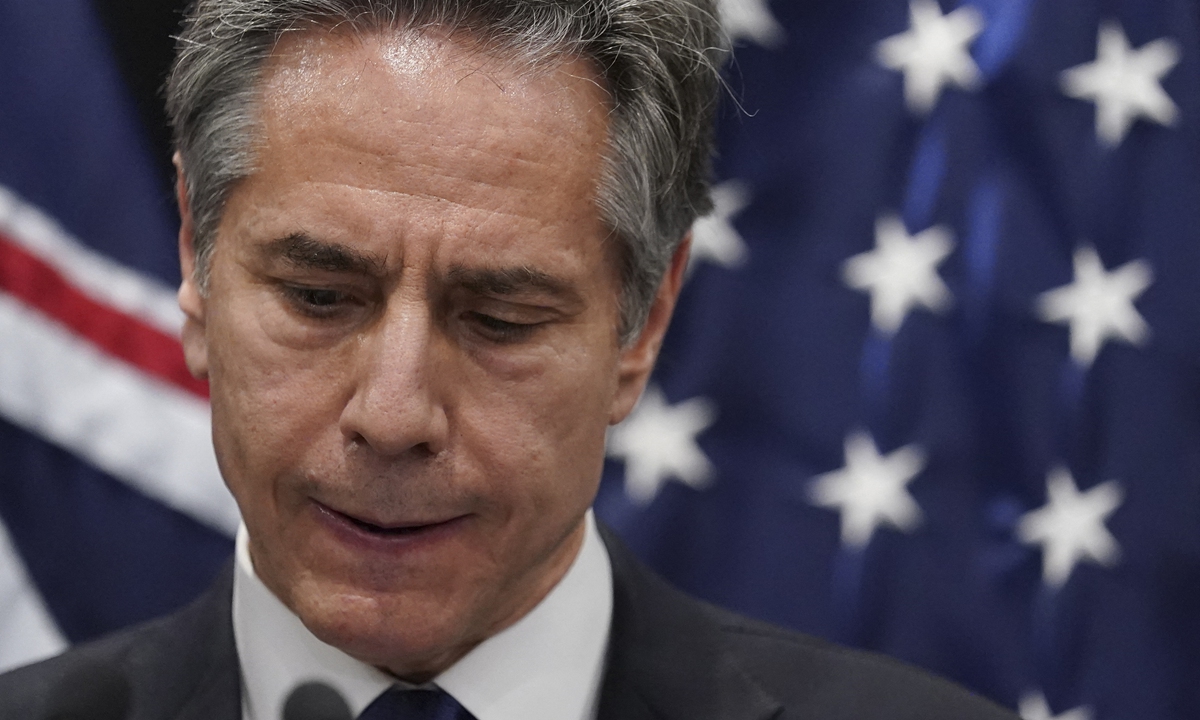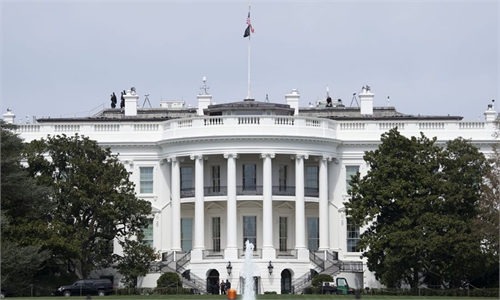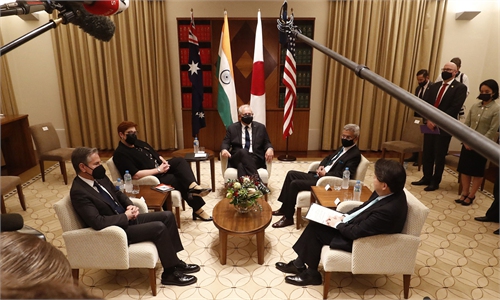Washington’s Pacific islands tilt stems from pure self-interest: Global Times editorial

US Secretary of State Antony Blinken speaks during a press conference with Fijian Acting Prime Minister Aiyaz Sayed-Khaiyum during his visit to Fiji on Saturday. Photo: AFP
US Secretary of State Antony Blinken flew from Australia to Fiji on Saturday and met virtually with leaders of 17 Pacific island nations. Blinken announced the US would reopen its embassy on the Solomon Islands and pledged more American help on issues of concern to Pacific island countries, such as climate change.
But almost all Western media outlets covering the trip have noted one thing - Blinken's trip was to counter China's influence. It has been seen that Pacific island countries have been unilaterally counted in the geopolitical map of conflict and confrontation by Washington out of the latter's strategic selfishness.
One day earlier, the White House released a document titled "Indo-Pacific Strategy of the United States." It claims the US will "meaningfully expand our diplomatic presence in Southeast Asia and the Pacific Islands," "be a partner in strengthening democratic institutions," and "work with allies and partners to… develop and deploy advanced warfighting capabilities."
Obviously, when the US intervenes in this region, it brings as usual the two rusty axes of "US democracy" and "military might," with the illusion that the US can cut the Pacific Ocean and make the region whatever shape the US wants.
As always, Blinken did not forget to sow discord in the region. At a joint press conference in Fiji, Blinken kept exaggerating the Russian threat to Ukraine, and repeatedly emphasized the "coercion" the free and open Indo-Pacific region faced. But what concerns Pacific island leaders the most is how to tackle climate change. When it comes to this issue, the US is really not a reliable partner. During the press conference, the Acting Prime Minister of Fiji Aiyaz Sayed-Khaiyum put it bluntly, "When the US signaled its intent to leave the Paris Agreement, we felt forgotten by a superpower."
For a long time, the US was void of steady interest in Pacific island countries, and it will only look down and notice the region whenever there is a strategic need. The US Embassy in the Solomon Islands has been closed for 29 years. The position of US ambassador to Fiji is still vacant. This time, it is the Embassy's chargé d'affaires who welcomed Blinken's "historical visit." Blinken is the first US secretary of state to visit Fiji in 37 years. If it wasn't for the deep strategic anxiety, Washington would not think of Pacific island countries for another 37 years.
The US intends to return to the Pacific region, without concerning itself with what the island countries really need. After the catastrophic volcanic eruption in Tonga, although the US and Australia, as neighbors, were the loudest ones who claimed to provide aid, the first supplies that arrived in Tonga came from China. Now Blinken goes to these countries and warns them that China is dangerous, instead of talking about bilateral cooperation and livelihood development. Don't these countries know clearly who is helping them and who is using them as tools? Do they still need Washington to teach them?
Unlike the fact that the US secretary of state took 37 years to think of Fiji, more than 20 Chinese officials at the level of foreign minister or higher have visited the country since 1985. Today, China is the second-largest trading partner of Pacific island countries. On the issue of climate change, which is of concern to Pacific island countries, China is not only committed to its words and will take the shortest time to achieve carbon neutrality from the peak of carbon emissions, but also provides assistance within the framework of South-South cooperation, for the island countries to enhance their capacity to deal with climate change. What is particularly important is that China's relations with Pacific island countries have always been open, transparent, inclusive and not targeted at any third party.
The US claims that the Indo-Pacific should be free and open, but it has imposed its security anxiety on the Pacific island countries, injected conflicts, confrontation and insecurity in the region. As it turns out, the aid for the purpose of geopolitical competition is more about satisfying the US strategic demands.
In Africa, for example, there has been little sincere cashing in terms of US promises to Africa, from the Obama administration's "Power Africa" initiative, to the "Prosperous Africa" initiative launched by the Trump administration and the recent "Build Back Better" plan of the Biden administration. Over the years, US investment in Africa has declined rather than risen.
Now, when the US abruptly thinks of Pacific island countries, people there are most concerned about how soon "Mr. Blinken's visit and promises will lead to measurable results." Based on past experience, however, there is reason to worry that Washington is ultimately setting off fireworks in the Pacific just for its own pleasure, and that others will probably only get to hear the sound.


